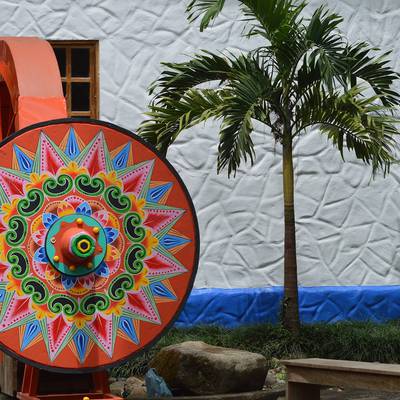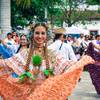
What should I know about the local culture?
Costa Rican culture is a vibrant blend of indigenous heritage and Spanish colonial influence, with a dash of Jamaican, Chinese, and other immigrant cultures lending character and customs.
Costa Rica is made up of many ethnic groups, with the majority made up of whites and mestizo. The country recognizes Roman Catholicism as the official religion and there are churches of various sizes throughout Costa Rica's towns and cities, although the general population is not especially religious
Most of Costa Rica's 4 million inhabitants are of Spanish and Native American descent, which means there are a lot of traditions and cultural nuances that are still observed today. Spanish is the primary language there, but six distinct indigenous languages have survived over time, and are still spoken by some residents.
As people, Costa Ricans place a lot of emphasis on the importance of community, and families are often very large. Music and food play an integral role in many family functions and public gatherings, and the preparation of traditional meals is often just as important as the fiesta itself!
Visitors who enjoy sports may want to brush up on their knowledge of the rules of soccer, as the game is extremely popular there. The locals that tourists meet on their vacations here may even invite them to join in a game.
One phrase you will hear wherever you go in Costa Rica is pura vida. It translates to “pure life”, but means so much more than that. Locals use it as a greeting, as a farewell and to express gratitude – it embodies a way of life, being happy with what you have. This way of thinking can perhaps go some way to explaining why Costa Rica is constantly listed among the happiest countries in the world.
Costa Rica also abolished its army in 1948 and aims to be completely carbon-neutral by 2021 – even now, and for the second consecutive year, 98 per cent of its energy comes from renewable sources, according to figures released by the Costa Rican Electricity Institute.
Punctuality is not a Costa Rican strong suit. Ticos often show up anywhere from 15 minutes to an hour or more late to meetings and appointments – this is known as la hora tica, or "Tico time." That said, buses and local airlines, tour operators, movie theaters, and most businesses do tend to run on a relatively timely schedule.

What can I bring home from Costa Rica?

What type of adapter do I need for the outlets?

What local dishes to try in Costa Rica?

What alcoholic drinks to try while in Costa Rica?

 What are the Costa Rican people like?
What are the Costa Rican people like?
 Do people in Costa Rica speak English?
Do people in Costa Rica speak English?
 Are there any rules I should follow to be respectful around Costa Ricans?
Are there any rules I should follow to be respectful around Costa Ricans?